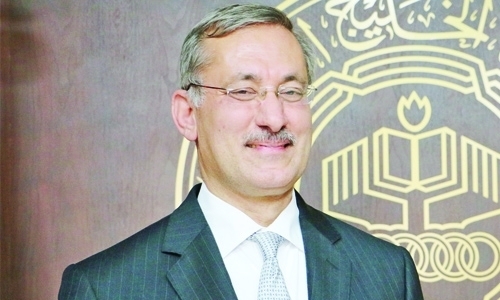Innovative mindsets and culture in Bahrain: Integral Innovation
In a globalized world that is shaped by images of risks due to poverty, unemployment, climate change, energy security, and refugees, it is insightful to harness and unlock this human capital for innovative forces that can transform scarcity to abundance and challenges to opportunities. Besides, the state of entropy at the socio-technological domain is evident in many parts of the world including the Middle East and North Africa (MENA) region. However, reflecting on the cycles of history and the rise and fall or civilizations, it is evident that innovation emerges after a state of de-construction of organizations and nations. The key question is: “Can science, technology and innovation pave a new avenue for a better future of progress and prosperity in the MENA region?
The alignment of innovation at the individual, organizational, and national levels is critical for reaping the fruits of science and technology. Integral innovation is simply about the “internet of ideas” and the web of cultures that shape society and economy. Our human collective efforts will be fruitful in integral innovation when we are able to revive and re-construct new models of smart and wise Arab cities founded on diversity and co-existence. The mandate to organize the built-environment, institutions, infrastructure, and services should be part of a transformative vision to move to a state of an innovative re-construction. Bahrain is keen to embody such a transformative vision.
The GCC and MENA region is rich of innovative minds that are contributing to social development. For example, in Bahrain many entrepreneurs have induced impact beyond GCC to reach Europe like Mohammed Buhiji who founded the Institute for Inspiration; Ahmed Buhazza who developed models for social innovation and promoting technology to support people with special needs; Amin Attajer who is harnessing his technical talent in ICT to develop computer games for learning. Moreover, Alaa Abdul-hamid had scaled up her college project to an innovative startup firm called Butterfly to show the butterfly effect of ideas.
The future of the GCC region is underpinned by the ability to connect these innovators with an ecosystem that nurtures an “innovative culture and mindset” which will leverage an innovation-sustainability nexus for enlightenment. The MENA region cannot live on the legacy of the past or what is referred to as the Golden Age syndrome. What is needed is a fresh and deeper understanding and analysis of the conditions for progress and prosperity.
Moreover, it is imperative to design an enabling environment for integral innovation to enlighten individual, organizations and nations so as to have the capacity to revisit worldviews and catch up and leapfrog into a better future. In sum, Bahrain, with its collective culture, tolerance, talented human capital and quality education system was able to provide a good example that tells a compelling story; i.e., investing in the human capital pays off.
Prof. Odeh Al-Jayyousi, Head of Innovation and Technology Management, Arabian Gulf University, Bahrain,
E-mail: odehaj@agu.edu
Related Posts

